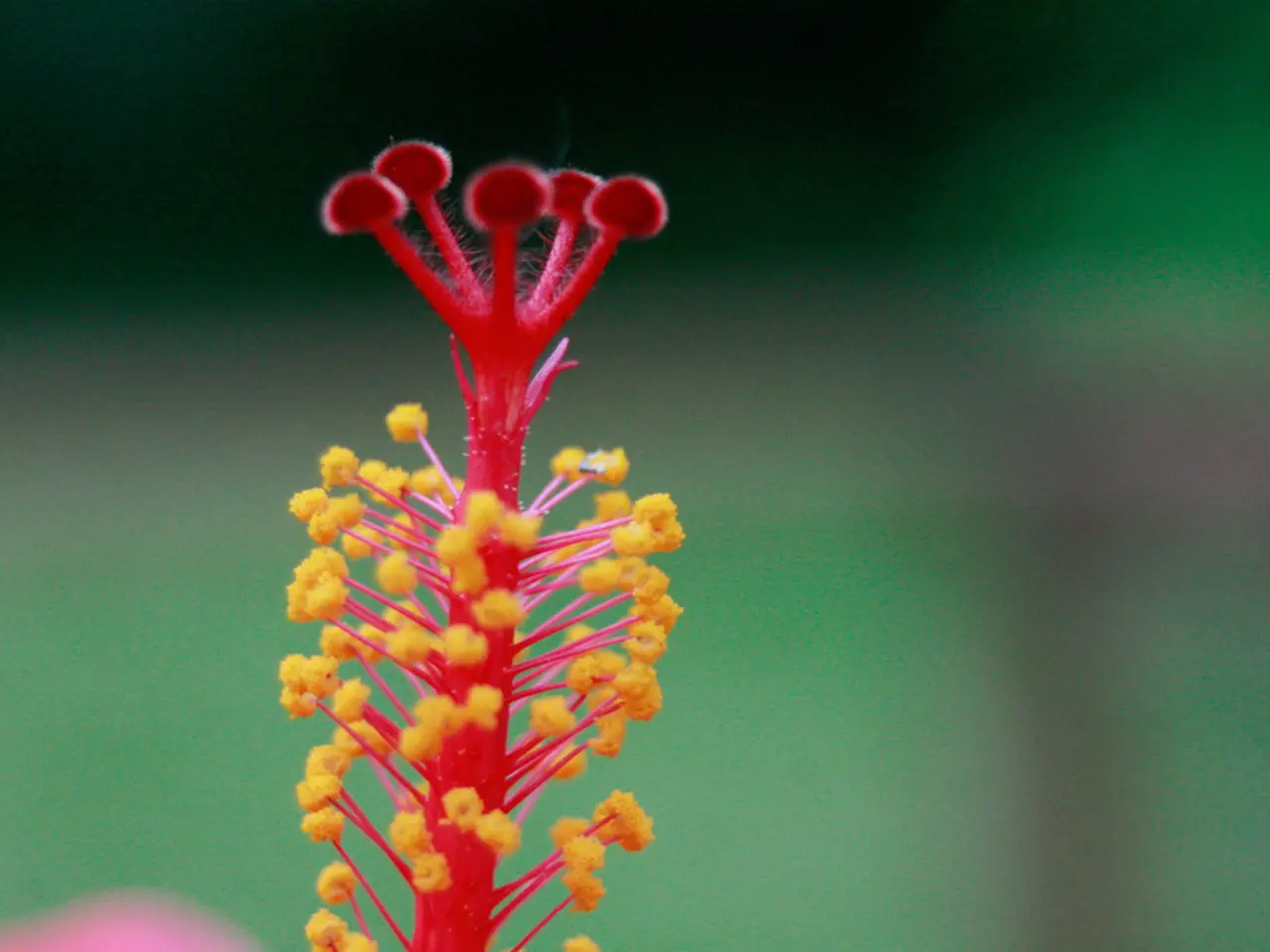Navigating Allergy Struggles During India's Pollen Seasons: Insights and Tips for Clearer Breathing
Suffer from a runny or blocked nose during the season change? You're in good company, as millions of people across India face the same sniffly, sneezy struggles. But what exactly causes these pesky allergies, and how do you put a stop to them? Let's take a closer look.
First off, the culprit is often allergic rhinitis, also known as hay fever. Don't be fooled by the name - it's all about your immune system overreacting to common airborne allergens like pollen, dust mites, pet dander, and mould. These allergens trigger a cascade of reactions, leading to the release of histamine and other inflammatory substances in the nasal passages. Hello, nasal congestion, sneezing, and runny nose!
But allergic rhinitis doesn't stop at a stuffy nose - it often brings a whole suite of unwanted symptoms, such as:
- Repeated sneezing
- Itchy nose, eyes, or throat
- Watery, red, or swollen eyes
- Clear nasal discharge
- Postnasal drip
- Persistent cough and fatigue
If left untreated, these symptoms can interfere with your sleep, reduce your concentration, and impact your quality of life.
The good news? India's vibrant climate and diverse living conditions make it a hotspot for a variety of allergens, but with the right approach, they can be managed.
Start by identifying your triggers with allergy testing. Once you know what's causing your symptoms, here are some tips to help reduce your exposure:
- Keep windows closed during high-pollen periods
- Use HEPA air purifiers
- Regularly wash your bedding in hot water
- Avoid damp environments and improve ventilation
- Wear a mask when outdoors during polluted or pollen-heavy conditions
- Use saline sprays or neti pots to clear allergens from your nasal passages
In addition to these strategies, over-the-counter medications like antihistamines, decongestants, and nasal corticosteroids can offer relief. For persistent cases, allergy shots or tablets may help desensitize your immune system over time.
Don't ignore persistent allergic rhinitis – it can lead to more serious health issues like sinusitis, ear infections, asthma, poor sleep quality, and frequent headaches. When symptoms last more than a few weeks, interfere with sleep or work, or you experience repeated sinus infections or worsening asthma, it's time to consult a physician or ENT specialist.
Seasonal allergies may be common, but with awareness, timely medical intervention, and proactive care, they're not something you have to live with. Embrace the change of seasons with a clear nose and a breath of fresh air.
Author
*Dr G V K Chaitanya Rao***
Nose & Sinus Superspecialist
Managing Director, Dr. Rao's ENT
Disclaimer: No out-of-house journalist was involved in the creation of this content. The group also takes no responsibility for this content.
- Science can provide insights into the root causes of seasonal allergies, such as hay fever, that affect millions of people in India.
- Workplace wellness programs can help address the impact of chronic diseases like allergic rhinitis on employee productivity.
- Medical conditions like allergic rhinitis can cause respiratory conditions that lead to repeated sneezing and coughing.
- Eye health is often affected by allergic rhinitis, resulting in red, swollen eyes and watery discharge.
- Mental health can be impacted by conditions like allergic rhinitis, causing fatigue, reduced concentration, and sleep disturbances.
- Fitness and exercise can help boost the immune system and reduce the severity of allergic rhinitis symptoms.
- Climate change, with its increased pollen counts and air pollution levels, may exacerbate the prevalence of allergic rhinitis in India.
- The manufacturing industry can contribute to the worsening of indoor allergens, resulting in poor air quality and increased cases of allergic rhinitis.
- Skin care products should be chosen carefully, as some may contain allergens that trigger allergic rhinitis symptoms.
- Therapies and treatments for allergic rhinitis include over-the-counter medications and allergy shots to help manage symptoms and improve quality of life.
- Nutrition plays an essential role in maintaining a healthy immune system and reducing the severity of allergic rhinitis symptoms.
- The healthcare industry, including Medicare and insurance providers, can help cover costs associated with the diagnosis and treatment of allergic rhinitis.
- Environmental science research can shed light on the effects of outdoor environments on allergen levels and aid in the development of prevention strategies.
- Financial management is crucial for managing the costs associated with prescription medications, allergy testing, and treatments for allergic rhinitis.
- Energy-efficient HVAC systems and air filtration systems can help reduce indoor allergens and alleviate allergic rhinitis symptoms.
- Skin conditions, such as eczema or dermatitis, can serve as hidden triggers for allergic rhinitis.
- The retail sector can offer a variety of products designed to help alleviate allergy symptoms, including air purifiers, saline sprays, and masks.
- Entrepreneurship in the health and wellness industry can provide opportunities for innovative solutions to address the challenges posed by allergic rhinitis.
- Interior design considerations, such as incorporating air-purifying plants, can help reduce indoor allergen levels and improve air quality.
- Transportation options, including carpooling, can help reduce exposure to outdoor pollutants and allergens.
- Leadership in the healthcare industry can advocate for policies and practices that address the need for allergy testing, diagnosis, and treatment.
- Diversity and inclusion initiatives can help ensure that solutions for allergic rhinitis are accessible and effective for all individuals.
- Wearables and smart home devices can monitor air quality and offer alerts when outdoor conditions exacerbate allergic rhinitis symptoms.
- Cybersecurity measures are essential to protect sensitive health data, such as allergy test results and treatment records.
- Lifestyle changes, such as quitting smoking, can help reduce exposure to indoor allergens and alleviate allergic rhinitis symptoms.
- Outdoor living spaces can be designed with allergies in mind, using low-allergen plants and hardscaping materials.
- The automotive industry can develop vehicles with advanced air filtration systems to help protect passengers from outdoor allergens.
- Small businesses, investing in finance, wealth management, and real estate can help fund innovative solutions for addressing the challenges posed by allergic rhinitis.







